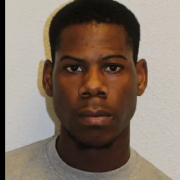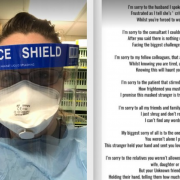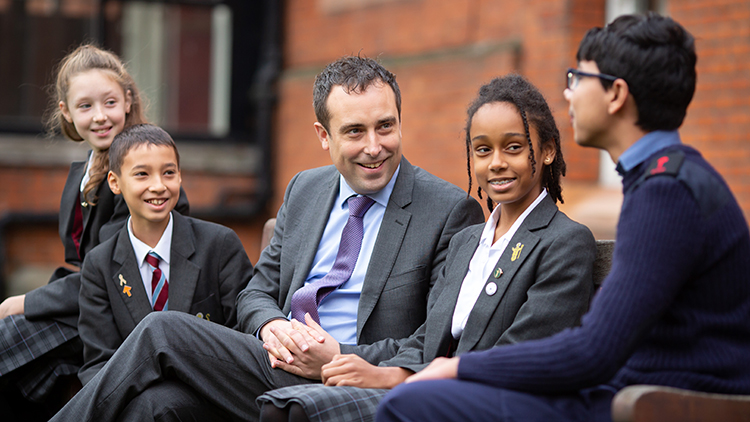
Pic: St Dunstans College
Nicholas Hewlett sits down with a calm and poised energy for our Zoom chat. Academic books are organised neatly on the shelves behind him and a dark wooden art piece hangs boldly above his left shoulder.
The headmaster of St. Dunstan’s College in Catford made waves in the news at the start of LGBTQ+ history month in February this year after he came out to his staff and pupils in an assembly on February 1 2021.
Enjoying the Easter break in the casual form of a navy-blue polo shirt, he still looks as put together as he would in the more familiar work attire of his suit and tie.
‘Poles apart from today’
Beginning with a vivid reminder of how rapidly society has progressed, Hewlett, 41, says: “I was in school in the 1990s and those times were very different.”
Section 28, a law that prohibited the promotion, teaching and acceptability of homosexuality, was active from 1988 until 2003. It affected social attitudes towards gay people and in some cases made educational staff fearful of discussing these issues with students.
“I think it’s very easy to forget how much society has come on in the last 20 years.”
He continued to explain that his own area in South East London, in particular, was “poles apart from where we are today.”
“It was rooted in a totally different social dynamic that was challenging at times, particularly as a boy trying to come to terms with and settle upon identity in that way. Being in that culture and society was not always straightforward and was not always easy.”
Different options
Hewlett shared that he feels privileged to work in Catford, Lewisham, part of the diverse community near where he grew up in South East London. His father was a teacher at the school he attended adding to fond memories of supportive and strong friends.
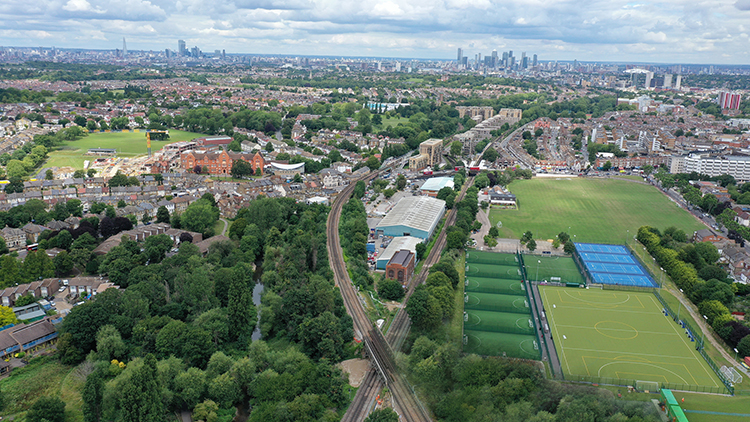
Pic: St Dunstans College
He faced many options before diving headfirst into the profession he is now so passionate about.
The classical singer was offered the chance to study at the Royal Academy of Music in his early twenties. His part-time university job also presented a graduate scheme place to stay on with them. Also presented with a choice between a city office job it was the enjoyment working with young minds that made the decision for him.
“In many ways young people think in more interesting ways than the older generation because they’re much less entrenched in their views.”
As he continued, it becomes impossible to ignore the overwhelming sense of a person that is content with life and carrying out their purpose to the fullest.
“There’s never a dull moment in education, no day is ever the same. With growing minds and that journey of discovery that all young people go on, life has its peaks and troughs and every day you’re having to respond to a totally different situation and I find that incredibly fulfilling.”
Ten years together
Hewlett met his partner through their shared love of music in Oxford where he was working at the time. The pair have been together for the last decade.
“We are very fortunate to have a really great relationship rooted in mutual respect and friendship first and foremost which is what I think all good relationships should be founded on.
“We have great common interests, we love music, we love going on nice walks and enjoying the outdoors and there’s always plenty to talk about,” he says with a smile.
‘But why is this news sir?’
It was actually the courage and bravery of a pupil at Hewletts’ school that inspired him to make the announcement and front LGBTQ+ week.
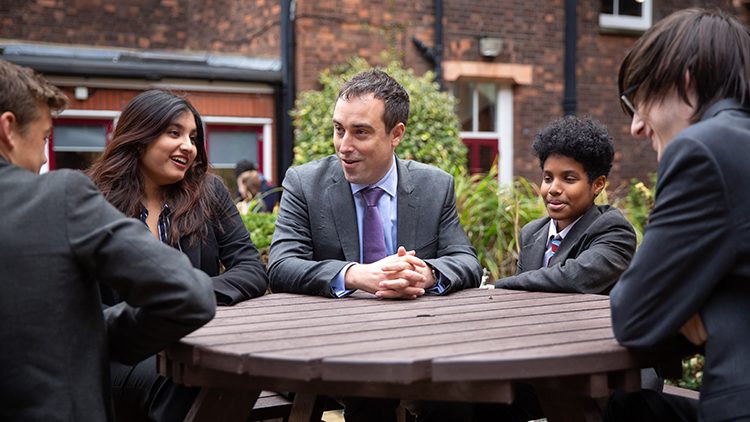
Pic: St Dunstans College
He explained that a gay pupil commented how supported he felt by the environment at St. Dunstan’s. The casual nature of this comment struck Nick and he drew comparisons between the culture when he was in school. This made him decide to be open and honest about his own situation and hopefully “give comfort to some children who may be struggling on that journey.”
He added: “The whole intention behind it was not to cause this enormous big kind of media furore.”
Amid the lovely messages of support from across the globe and some emails from children of thanks, the unsuspecting star stated that the main message and request from the children was to help them understand why it was news.
“That was actually a kind of education in itself for them to try and understand how much society has moved on and their narrow experience of a very inclusive environment.”
LGBTQ+ in education
“There are real issues in our sector in particular over inclusion. I’m very convinced that I am not the first gay head but the very fact that it made news and that clearly I am the first head to have a story of that nature tells you that there is something wrong with the sector.”
He cites a possible subconscious preference of a “heteronormative figurehead” when recruiting school leaders as a reason for these issues.
He is also striving to “dispel the myth” that parents may react badly and shares that in his seven years as headteacher at St. Dunstan’s this has not ever occurred.
“In terms of LGBTQ+ education, I do still think we’ve got a very long way to go. There is a very real risk at the moment that we move into a world that almost slightly more threatening because it becomes this kind of tokenistic liberalism”
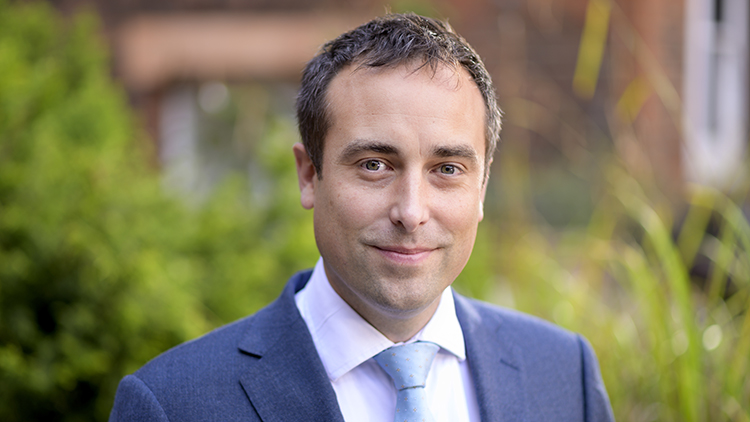
Pic: St Dunstans College
This headteacher doesn’t just want to see a tick in the box of covering a topic in a lesson but in fact a change in mindset that is woven into the social fabric of schools.
Who inspires you?
In response to the final big question of “who inspires you in life?” Hewlett, with little hesitation, has an uplifting response: “This next generation of children who I’m working with are genuinely really inspirational.
“The young people today are so resolved and determined to make a difference that I do have real optimism about the future rooted in that generation when they get through to being able to make a genuine difference.”

